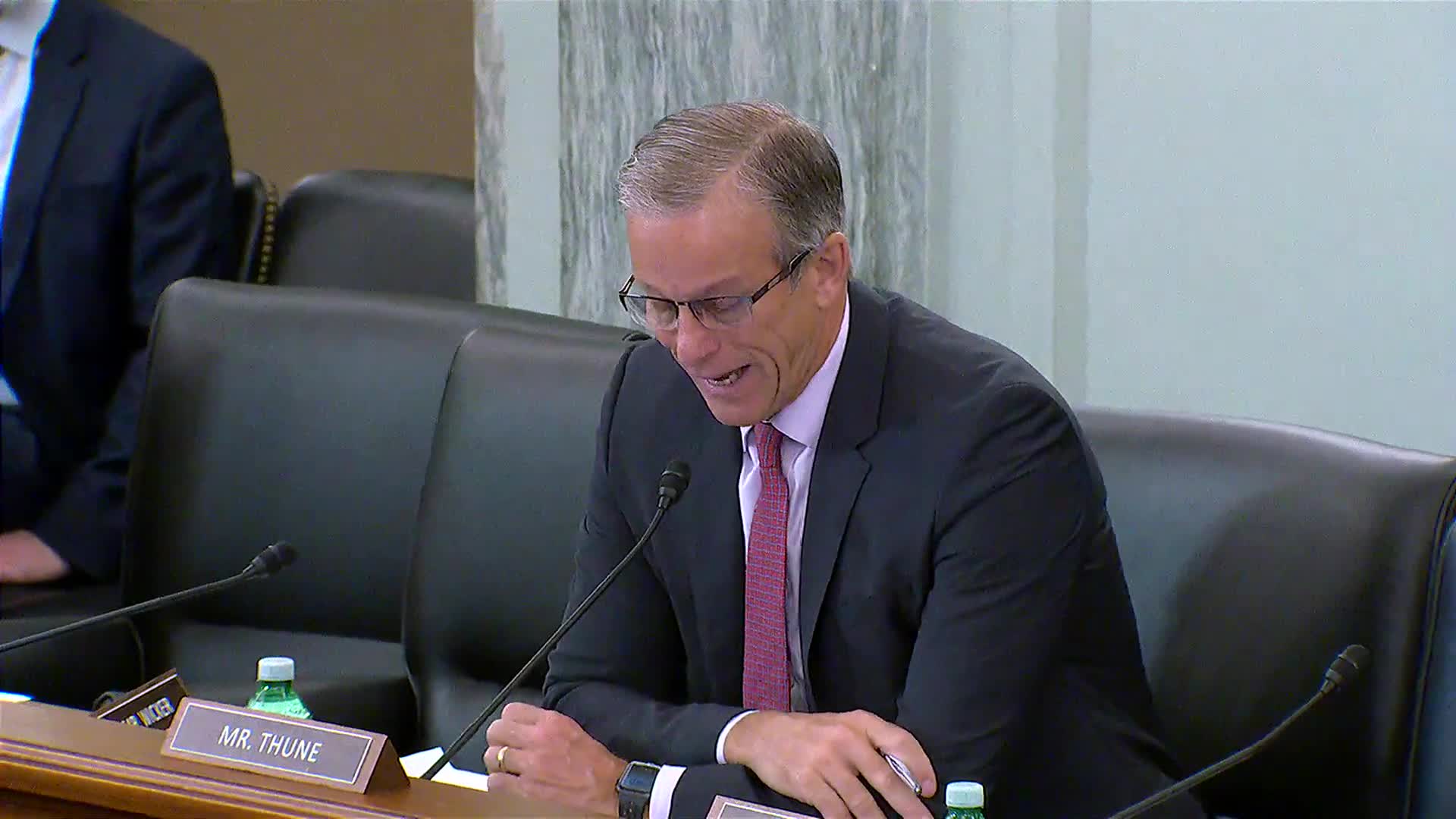Senators Sinema and Babbitt push for advanced pilot simulator training in FAA reauthorization
November 10, 2023 | Commerce, Science, and Transportation: Senate Committee, Standing Committees - House & Senate, Congressional Hearings Compilation
This article was created by AI summarizing key points discussed. AI makes mistakes, so for full details and context, please refer to the video of the full meeting. Please report any errors so we can fix them. Report an error »

In a pivotal meeting of the U.S. Senate Committee on Commerce, Science, and Transportation, lawmakers gathered to address a pressing issue in aviation safety: the alarming rise in near-miss incidents involving commercial flights. The discussions underscored the urgent need for enhanced pilot training, with a particular focus on the integration of advanced simulator technology.
As the meeting unfolded, Senator Kyrsten Sinema and her colleagues emphasized the importance of not becoming complacent in the face of increasing aviation incidents. They proposed an amendment to the FAA reauthorization that aims to establish a two-month enhanced qualification program for airline pilots. This initiative seeks to combine rigorous classroom instruction with advanced simulator training, allowing trainees to experience the cockpit environments of the aircraft they will operate. The goal is to prepare pilots for challenging and potentially dangerous situations they may encounter in real flights.
Mister Babbitt, a key figure in the discussion, highlighted the critical role of modern simulation technology in pilot training. He pointed out that traditional training methods often put pilots in risky situations that could lead to fatal accidents. With advanced simulators, pilots can practice handling emergencies, such as engine failures during takeoff, in a safe environment. This not only enhances their skills but also fosters essential teamwork and decision-making abilities that are crucial in real-life scenarios.
The committee members recognized that while simulator training is invaluable, it should complement, not replace, real flight experience. They acknowledged that accumulating flight hours alone does not adequately prepare pilots for the complexities of commercial aviation. The integration of simulator training into the curriculum is seen as a way to bridge this gap, providing pilots with exposure to a variety of scenarios that they might not encounter during regular flight hours.
As the meeting concluded, the discussions left a clear message: improving aviation safety requires a commitment to innovative training methods. By embracing new technologies and enhancing pilot education, lawmakers hope to reduce the number of close calls in the skies and ensure a safer future for air travel. The proposed changes signal a proactive approach to addressing the challenges facing the aviation industry, aiming to equip pilots with the skills necessary to navigate the complexities of modern flight.
As the meeting unfolded, Senator Kyrsten Sinema and her colleagues emphasized the importance of not becoming complacent in the face of increasing aviation incidents. They proposed an amendment to the FAA reauthorization that aims to establish a two-month enhanced qualification program for airline pilots. This initiative seeks to combine rigorous classroom instruction with advanced simulator training, allowing trainees to experience the cockpit environments of the aircraft they will operate. The goal is to prepare pilots for challenging and potentially dangerous situations they may encounter in real flights.
Mister Babbitt, a key figure in the discussion, highlighted the critical role of modern simulation technology in pilot training. He pointed out that traditional training methods often put pilots in risky situations that could lead to fatal accidents. With advanced simulators, pilots can practice handling emergencies, such as engine failures during takeoff, in a safe environment. This not only enhances their skills but also fosters essential teamwork and decision-making abilities that are crucial in real-life scenarios.
The committee members recognized that while simulator training is invaluable, it should complement, not replace, real flight experience. They acknowledged that accumulating flight hours alone does not adequately prepare pilots for the complexities of commercial aviation. The integration of simulator training into the curriculum is seen as a way to bridge this gap, providing pilots with exposure to a variety of scenarios that they might not encounter during regular flight hours.
As the meeting concluded, the discussions left a clear message: improving aviation safety requires a commitment to innovative training methods. By embracing new technologies and enhancing pilot education, lawmakers hope to reduce the number of close calls in the skies and ensure a safer future for air travel. The proposed changes signal a proactive approach to addressing the challenges facing the aviation industry, aiming to equip pilots with the skills necessary to navigate the complexities of modern flight.
Don't Miss a Word: See the Full Meeting!
Go beyond summaries. Unlock every video, transcript, and key insight with a Founder Membership.
✓
Get instant access to full meeting videos
✓
Search and clip any phrase from complete transcripts
✓
Receive AI-powered summaries & custom alerts
✓
Enjoy lifetime, unrestricted access to government data
30-day money-back guarantee
